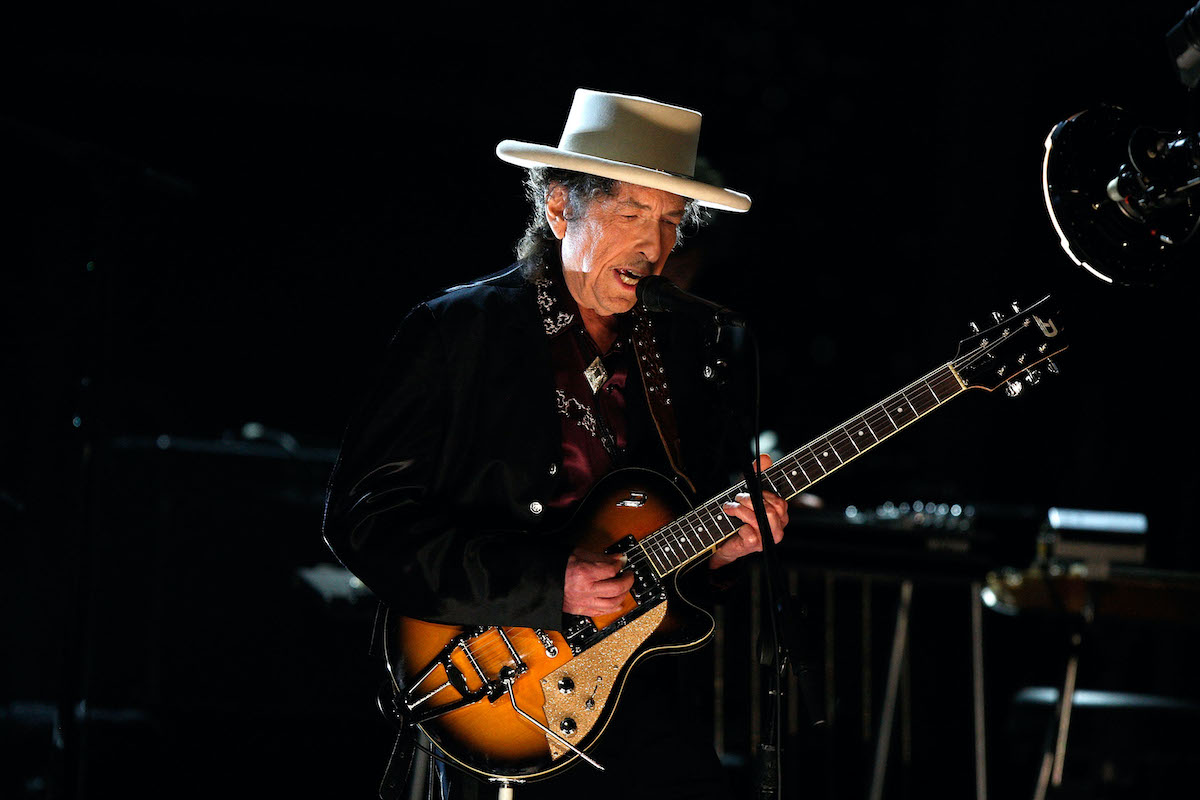

Bob Dylan is a canonical artist in the history of music. His lyricism and willingness to experiment with his sound made him an idol for many musicians following in his path. But even as he was rightly being hailed for his achievements, Dylan’s public persona has often been a contentious topic. Some of the singer’s antics contributed to the speculation, but Dylan had issues with how the world saw him.
Dylan did an interview with Ed Bradley for 60 Minutes in 2004 in support of his memoir, Chronicles: Volume One. (Volume Two has yet to be released.) It was his first TV interview in nearly 20 years. Their conversation spanned the entirety of Dylan’s career up to that point.
Born Robert Zimmerman, the artist was self-possessed by the idea that he was born to be a star. He made his dreams come true after moving to Greenwich Village, which was the epicenter of America’s counterculture movement at the time.
The artistic environment in the area and the general political climate of the time influenced Dylan to write The Freewheelin’ Bob Dylan and The Times They Are a-Changin’, two albums that became synonymous with the protest movements of the era.
Protest songs are, by definition, divisive. People happy with the state of the world took issue with Dylan’s message, and the artist felt that he was viewed as something more dangerous than he really was. “The image of me was certainly not a songwriter or a singer,” said Dylan.
“It was more like some kind of a threat to society in some kind of way.”
YouTube
Dylan became known as the voice of a generation, and he was able to parlay his popularity into a lucrative lifelong career in music. But that moniker comes with a lot of pressure and attention that never appealed to him.
“It was like being in an Edgar Allan Poe story, and you’re just not that person everybody thinks you are, although they call you that all the time,” he told Bradley. “I never wanted to be a prophet or savior. Elvis, maybe, I could easily see myself becoming him, but prophet? No.”
Celebrity culture was still in its nascent stages, but opinions about Dylan quickly became informed by things other than the songs on his albums. His transition to using electric instruments angered some people in the folk music scene he emerged from, and Dylan’s romance with Joan Baez also contributed to his mystique since it played a role in his writing.
Even moving out of New York City with his family to the more suburban Woodstock only succeeded in making his fans make a longer trek to find him and pick his uninterested brain on topics like politics, philosophy, and organic farming. Despite the acclaim, Dylan likes to claim that his music doesn’t have any inherent meaning from his perspective.
“My stuff were songs, they weren’t sermons. If you examine the songs, I don’t believe you’re going to find anything in there that says that I’m a spokesman for anybody or anything.”
Dylan makes valid points about the claustrophobia of stardom, and it’s fair to wonder if his unease with being deified was part of the reason why he is, in the words of Dolly Parton, “a weird buckaroo.”
To make onlookers reconsider their assumptions about him, Dylan did things like release intentionally bad records, pour whiskey on his head in public, and make an appearance at the Wailing Wall in Israel. His interactions with the media grew increasingly untrustworthy as he frequently made stuff up or refused to directly answer questions.
Even his own memoir seems to contain some lies. “The only person you have to think about lying twice to is either yourself or to God,” was Dylan’s justification in the interview. All of these moves only served to burnish his legend in the long run.